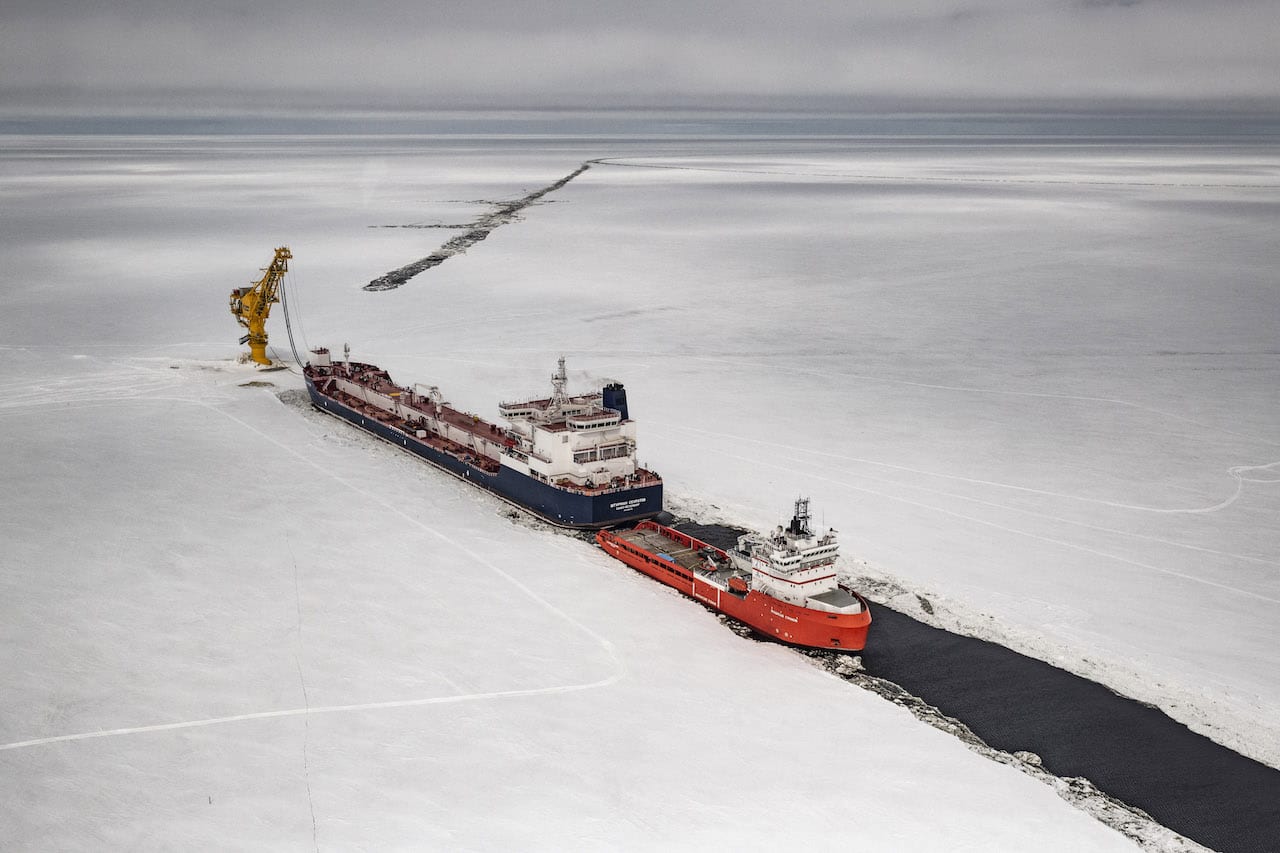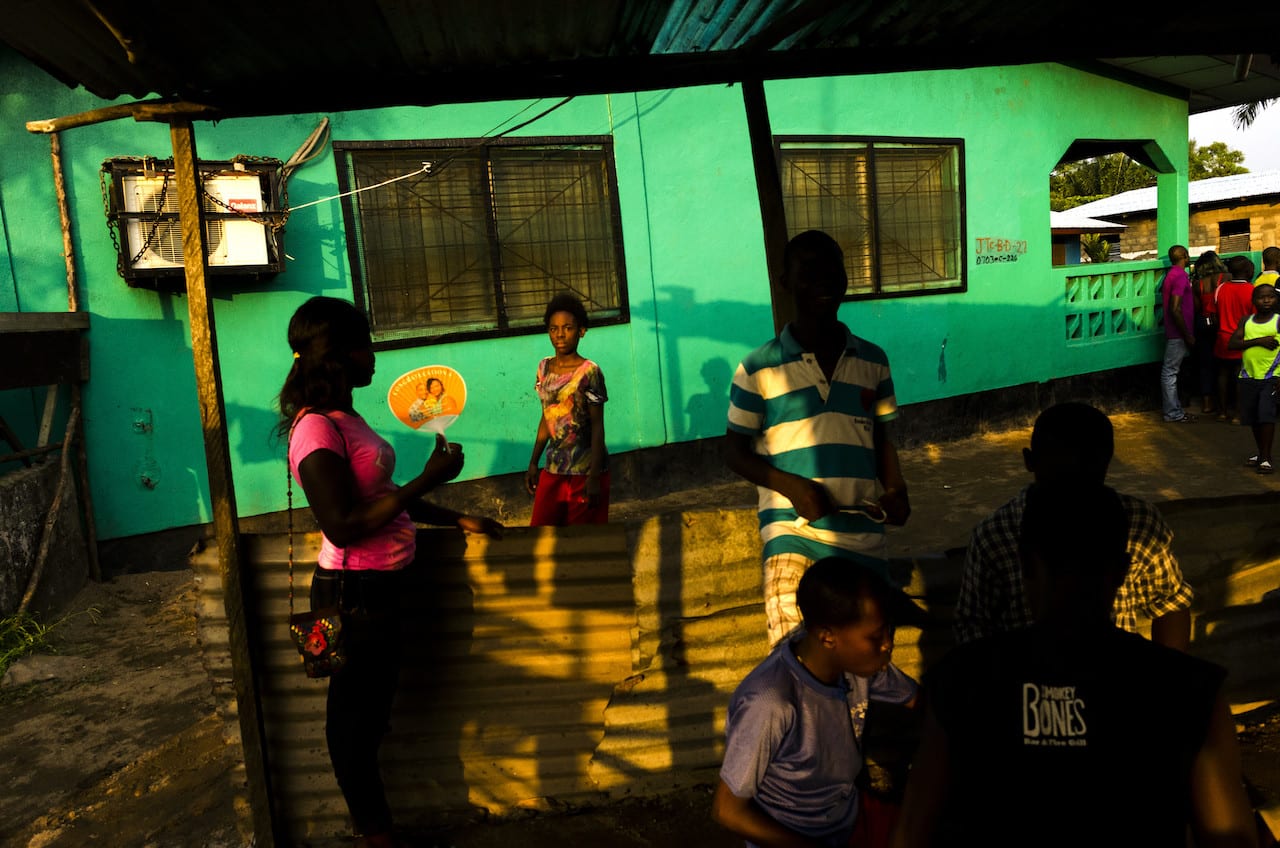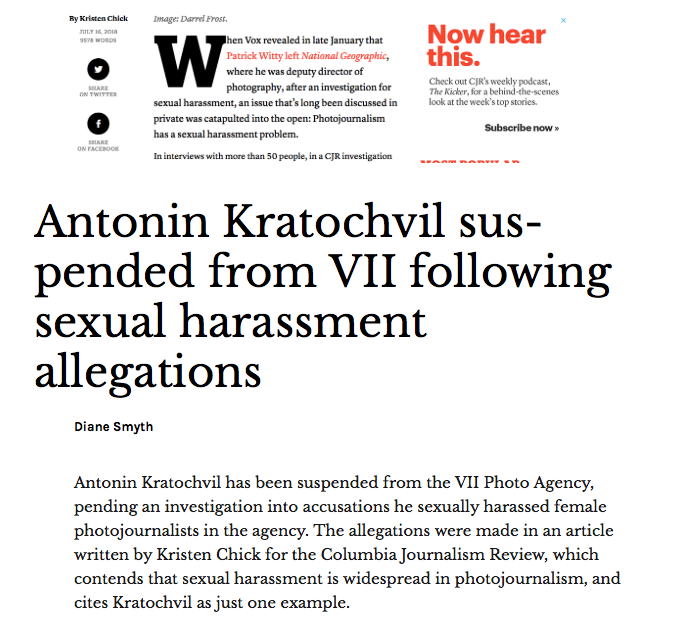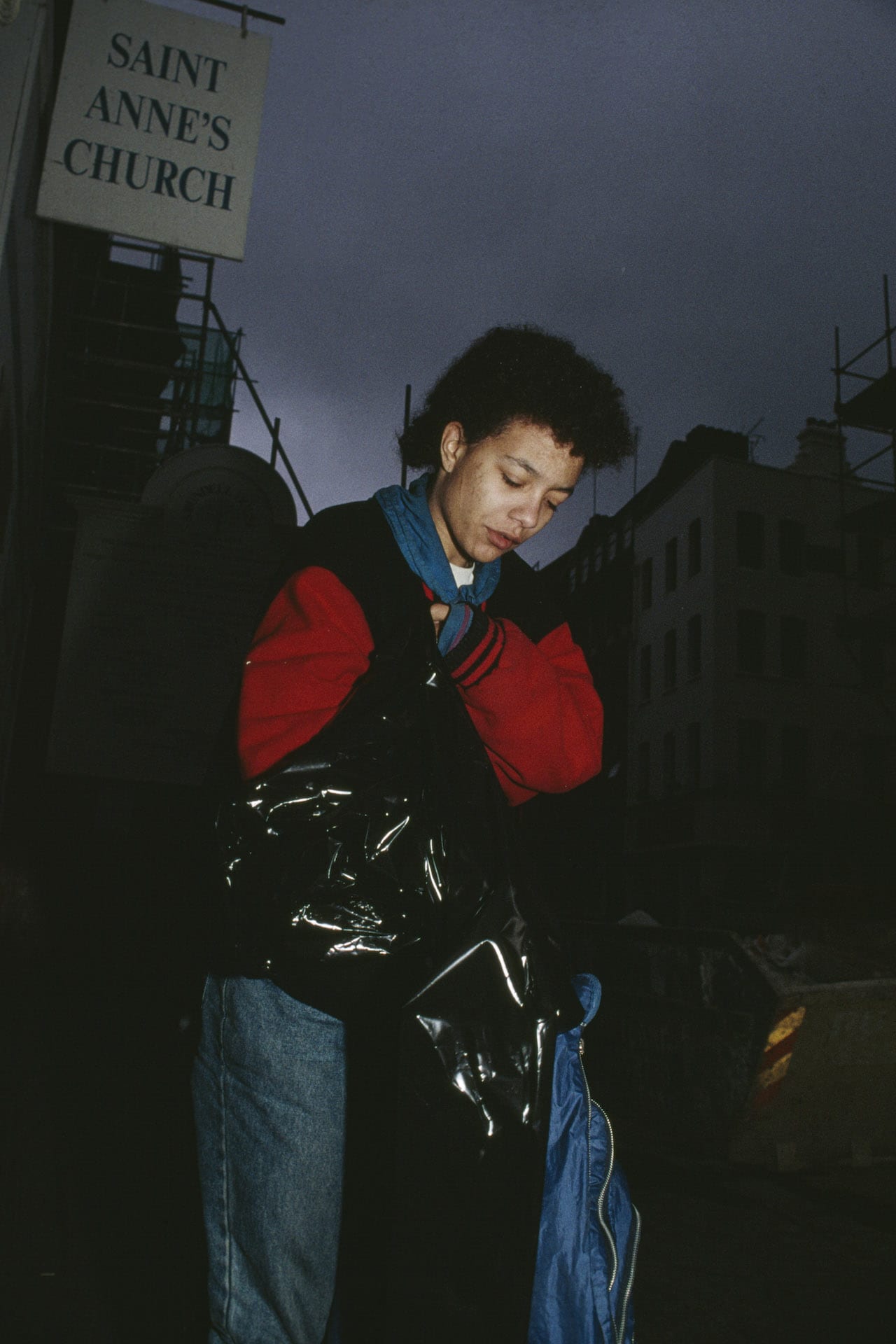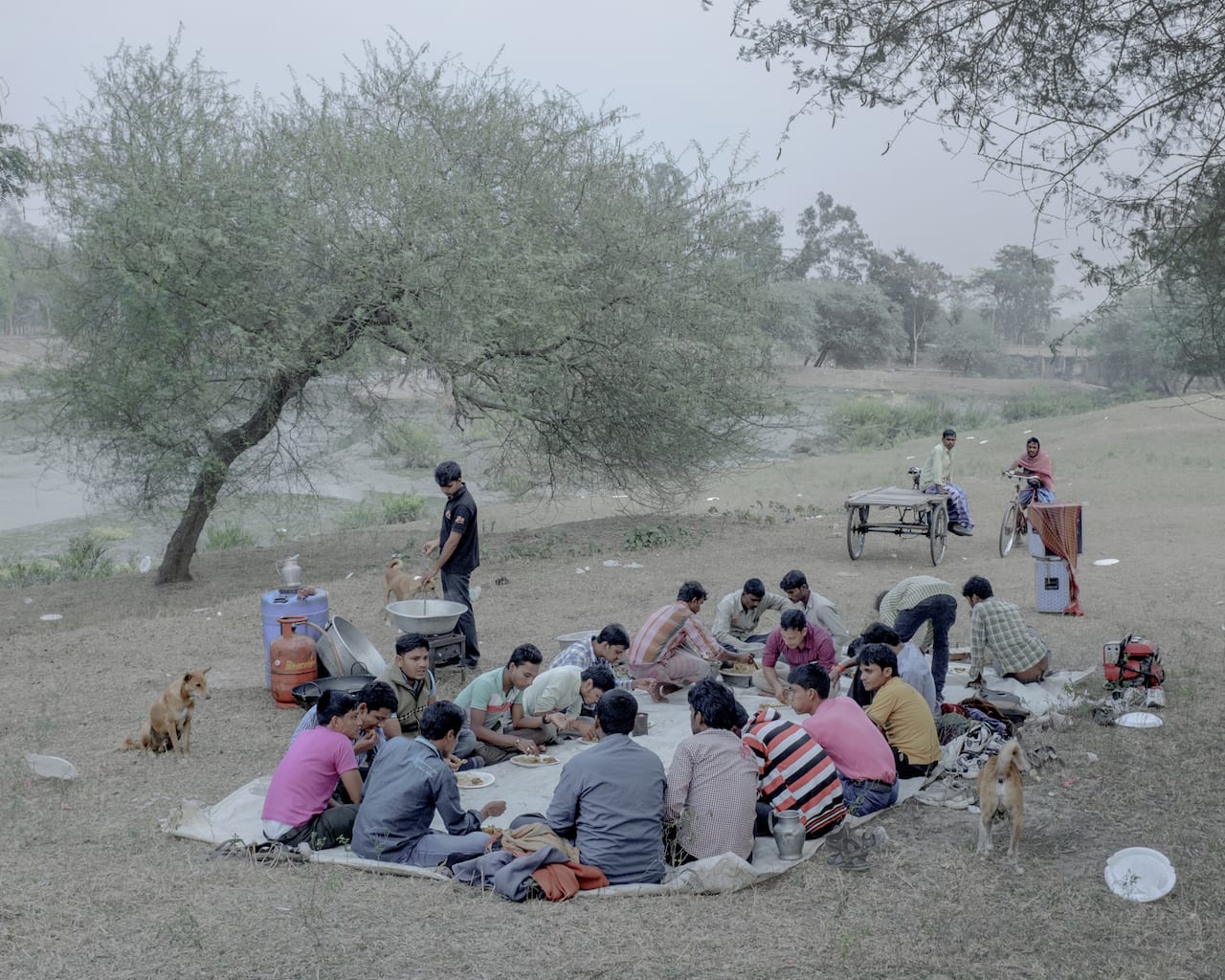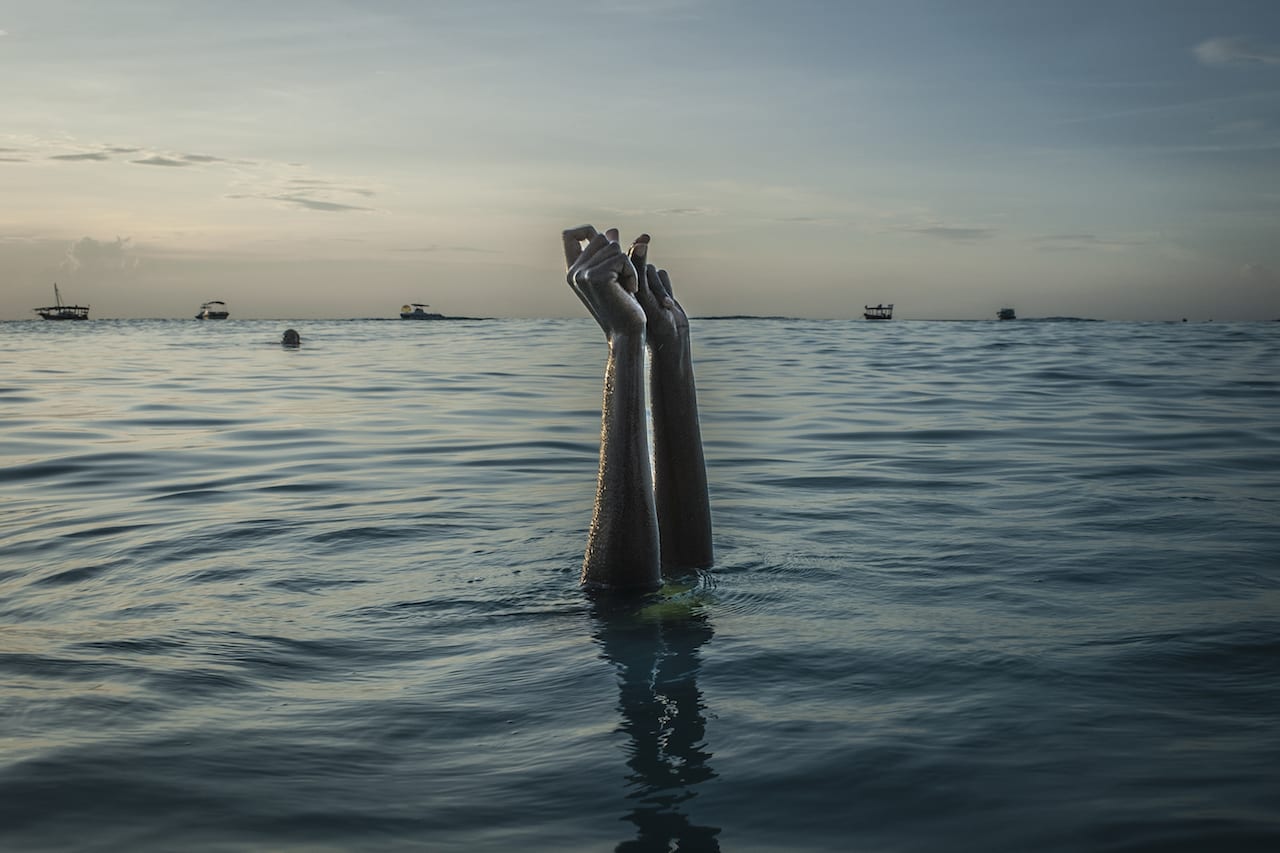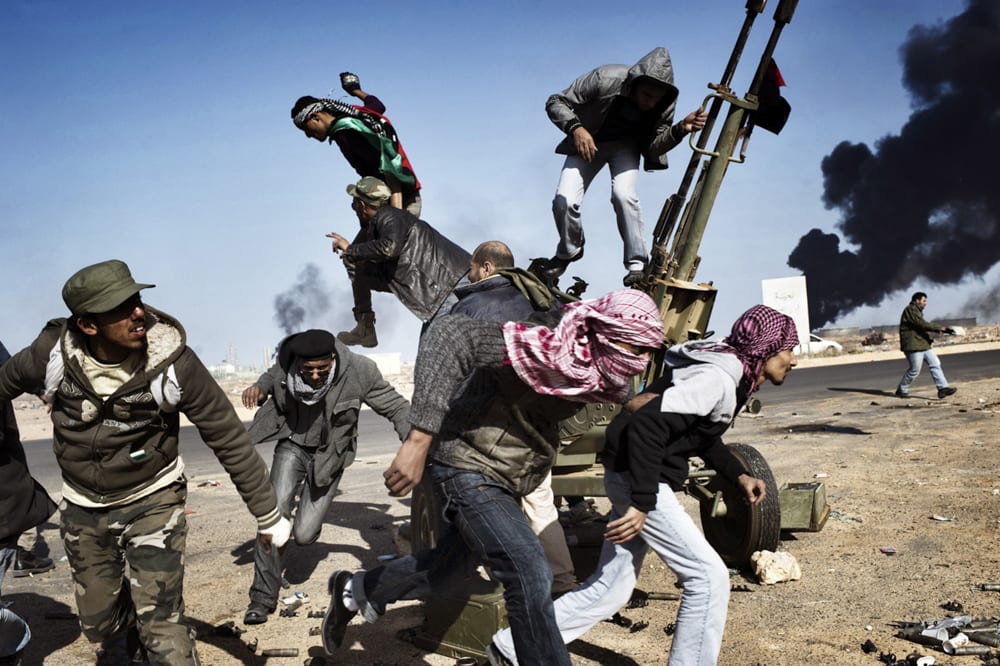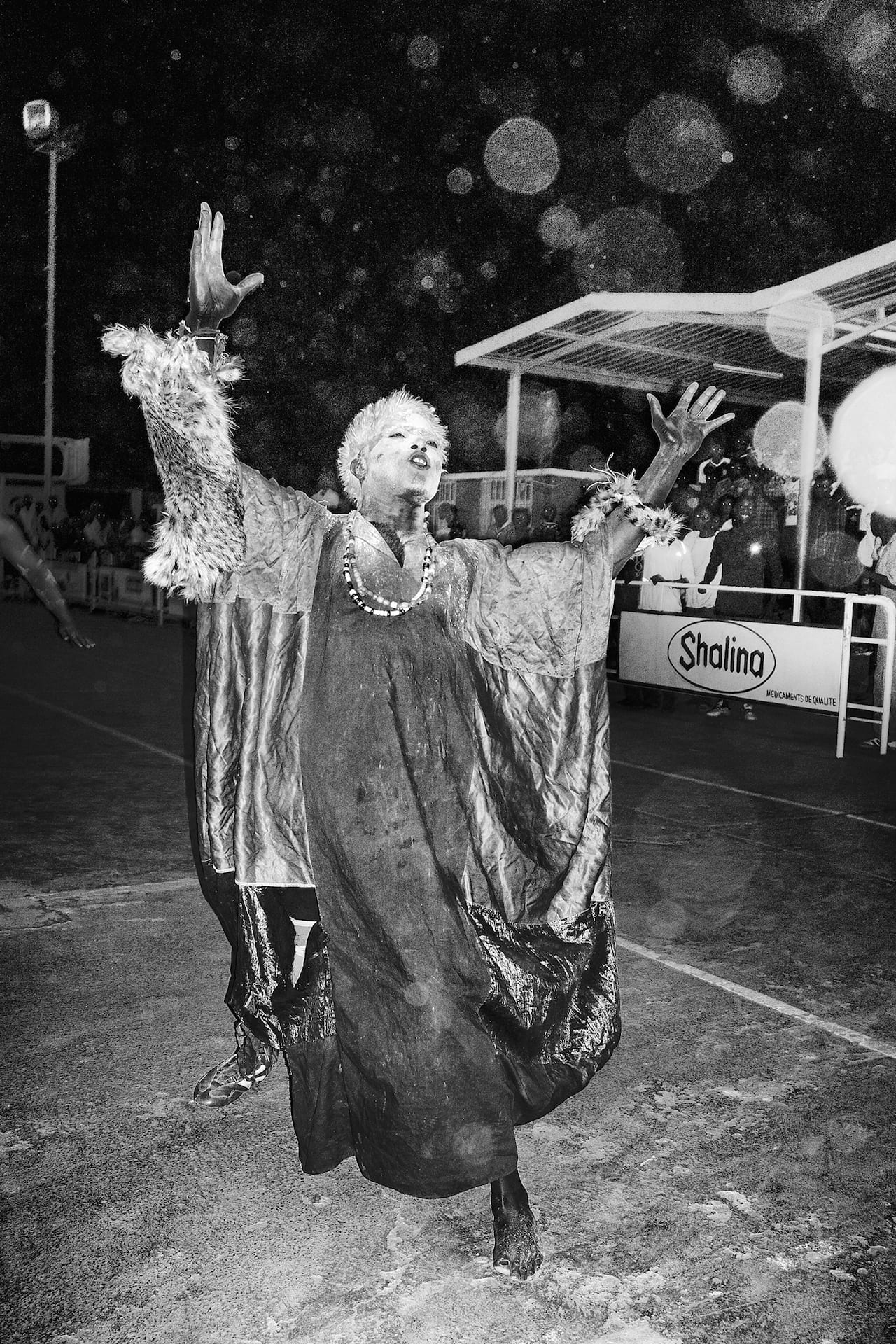The Arctic circle is warming twice as fast as the rest of the world. According to the National Oceanic and Atmospheric Administration, for the past five years Arctic air temperatures have exceeded all records since 1900. If temperatures continue to rise, scientists expect that the North Pole will be ice-free in summer by 2040.
Ice reflects sunlight while water absorbs it, so less ice means even higher temperatures. But the consequences of disappearing sea ice in the Arctic are more complicated than the obvious impact it has on our global climate. Less ice provides new routes for maritime shipping, and opens up new areas for the exploitation of fossil fuels, transforming the region into a strategic battleground for countries with vested interests – not to mention indigenous villages whose livelihoods are threatened by rising sea levels.
Photojournalists Yuri Kozyrev and Kadir van Lohuizen, who are both represented by NOOR, travelled through the Arctic circle, documenting the startling, and often complicated, effects of Arctic climate change. Arctic: New Frontier is the product of the ninth edition of the Carmignac Photojournalism Award, which each year funds a new investigative photo reportage on a humanitarian and geopolitical issue. An exhibition of over 50 photographs and six videos will be displayed at London’s Saatchi Gallery from 15 March until 05 May.

